Best Fruit Trees to Plant in Tennessee: Ultimate Guide
Grow a vibrant home orchard with expert guidance on variety selection, care, and harvest.
Best Fruit Trees to Plant in Tennessee: Comprehensive Guide
Tennessee offers an exceptional environment for growing a wide variety of fruit trees. The state’s moderate climate—spanning USDA Zones 5b to 8a—combines just enough warmth and winter chill to make orcharding not only possible, but deeply rewarding. Whether you’re aiming to fill your yard with blossoms in the spring or baskets of fruit in the summer, this article delves into the top fruit tree choices for Tennessee, along with expert guidance on planting, care, and troubleshooting common challenges.
Why Tennessee Is Ideal for Fruit Trees
The climate in Tennessee is particularly well-suited for fruit trees due to its:
- Mild winters that provide necessary chill hours without risking severe freeze damage.
- Warm summers that enable robust fruit development.
- Well-draining soils across much of the state, with rolling hills ideal for air flow and frost protection.
Whether you reside in the northern highlands or the lush valleys of Middle Tennessee, the right tree—and the right care—can yield bountiful, flavorful harvests season after season.
Top Fruit Trees for Tennessee Gardens
Here’s a detailed look at the most reliable fruit trees for Tennessee, including essential growing tips and variety suggestions.
Apple Trees (Malus domestica)
Apples remain one of the most popular and versatile fruit trees in Tennessee gardens. In addition to providing delicious fruit, apple trees enchant with fragrant springtime blossoms. Some varieties can even be trained as espaliers along fences or walls, making them suitable for small spaces.
- Key Varieties:
- Gala, Fuji, and Honeycrisp: Well-adapted to Tennessee climate. Choose more than one variety that bloom at the same time for cross-pollination and optimal fruit set.
- McIntosh: Classic flavor with high chill hour requirement, best for cooler areas.
- Granny Smith: Low chill hour needs, self-pollinating, but planting two boosts yield.
- Growing Tips:
- Plant in full sun and well-drained soil.
- Practice annual pruning to maintain shape and enhance production.
- Control pests like codling moths and apple scab with integrated pest management.
Pear Trees (Pyrus communis)
Pears are highly productive and thrive across Tennessee’s diverse regions. Their elegant blossoms and easy-to-grow nature make them favorites for both new and experienced gardeners.
- Key Varieties: ‘Bartlett’ and ‘Comice’ are revered for their productivity and flavor. Plant at least two cultivars together for cross-pollination, which is vital for fruit set.
- Growing Tips:
- Plant in sunny sites with good air circulation.
- Space trees to allow mature canopies; proper distance prevents fungal disease.
- Watch for fire blight—prune away affected branches to avoid spread.
Peach Trees (Prunus persica)
If you enjoy juicy, sun-ripened peaches, Tennessee’s longer, warmer growing season is perfect. Peaches establish quickly—many producing their first harvest within one to two years.
- Popular Varieties: Belle of Georgia and Redhaven are excellent for Tennessee gardens.
- Growing Tips:
- Full sun and well-drained soil are a must; avoid planting in low-lying frosty areas.
- Prune each winter to maintain an open center shape for sunlight penetration.
- Thin young fruit by hand to improve size and prevent limb breakage.
Fig Trees (Ficus carica)
Figs offer delectable, sugar-rich fruit and can be surprisingly easy to grow in parts of Tennessee. Hardy types are best for withstanding the occasional cold snap.
- Key Varieties: Celeste and Hardy Chicago are known for cold tolerance.
- Growing Tips:
- Frequent watering is essential due to their shallow root systems.
- Mulch well to retain soil moisture, especially during summer heat.
- Figs rarely need pesticides and generally resist common pests.
Cherry Trees (Prunus avium/prunus cerasus)
Cherries thrive in sunny, elevated sites where late spring frosts are less likely to damage blossoms. With fragrant white flowers and jewel-like fruit, cherries are as ornamental as they are productive.
- Key Varieties: Bing and Montmorency perform well in Tennessee, but remember most sweet cherries need a pollinator variety nearby.
- Growing Tips:
- Protection from birds is essential—netting or deterrents often required around harvest.
- Cross-pollination between complementary varieties is generally needed.
- Well-drained soil and full sun exposure yield best results.
Other Noteworthy Fruit Trees for Tennessee
- Plums: Japanese and European plums offer diversity in both color and flavor, and many are self-fertile.
- Persimmons: American persimmons, once established, are remarkably carefree and produce sweet, custard-like fruit in autumn.
- Pawpaw: Native to the region, pawpaw trees offer tropical-tasting fruit and thrive in shaded locations.
- Mulberries: Fast-growing and highly tolerant of soil variation, mulberries are ideal if you have space for a larger tree.
Essential Steps When Planting Fruit Trees
For a healthy, productive orchard, the foundation begins with proper planting and establishment:
- Choose the Right Site: Select a location with at least 6–8 hours of sunlight, good air circulation, and well-draining soil.
- Soil Preparation: Amend soil with organic matter if needed. Test the pH—most fruit trees prefer neutral to slightly acidic soil (pH 6.0–6.5).
- Planting:
- Dig a hole twice as wide and just as deep as the root ball.
- Position the tree so the graft union (if present) is 2–3 inches above the soil line.
- Refill with native soil, water deeply, and mulch to conserve moisture and suppress weeds.
- Watering: Keep young trees consistently moist for the first two years. Adjust watering frequency depending on rainfall and tree age.
- Staking: Stake only if necessary to protect from strong wind or if the tree is top-heavy. Remove stakes after the first year to encourage sturdy growth.
Fruit Tree Care Throughout the Year
Successful fruit production hinges not just on planting, but also ongoing maintenance:
- Pruning: Most trees need annual pruning in late winter before bud break to shape the canopy and remove any weak, dead, or diseased branches.
- Fertilizing: Apply a balanced, slow-release fertilizer in early spring. Over-fertilizing can promote leafy growth at the expense of fruit.
- Pest and Disease Control: Inspect trees regularly for insect activity, spotted or curling leaves, and fungal spots. Apply organic or conventional controls as needed. Keep areas around trees weed-free to reduce pests.
- Thinning: Hand-thin fruit on apples, pears, and peaches when they are marble-sized. This prevents branches from breaking and promotes larger, higher-quality fruit.
- Protection: Use netting, fencing, or wildlife repellents to keep deer, rabbits, and birds at bay.
Frequently Asked Questions (FAQs)
Q: Can I grow citrus trees in Tennessee?
A: Citrus trees like lemons or oranges are not reliably winter-hardy in Tennessee’s open ground, but they can be grown in containers and brought indoors during cold months.
Q: Which fruit tree is easiest for beginners?
A: Figs and apples are among the easiest. Both require minimal specialized care and are more disease-resistant compared to stone fruits like peaches or cherries.
Q: How long before I see fruit?
A: Most apple and pear trees take 3–5 years to bear, while peaches can start producing as soon as one or two years after planting. Fig trees may also fruit quickly under favorable conditions.
Q: How do I prevent birds from eating my cherries or berries?
A: Use bird netting secured over the tree, reflective tape, or decoy predators. Harvest fruit promptly as it ripens to reduce losses.
Q: Are there any fruit trees that grow in shade?
A: Most fruit trees need full sun, but pawpaw and some elderberries tolerate partial shade and will fruit well in woodland gardens.
Fruit Tree Comparison Table
| Fruit Tree | Key Varieties | Time to Bear Fruit | Pollination | Notes |
|---|---|---|---|---|
| Apple | Gala, Fuji, Honeycrisp, McIntosh, Granny Smith | 3–5 years | Cross-pollination recommended | Prune annually for best shape, watch for pests |
| Pear | Bartlett, Comice | 3–5 years | Requires 2 varieties | Prone to fire blight, good storage fruit |
| Peach | Belle of Georgia, Redhaven | 1–2 years | Self-pollinating | Prune for open center, frost-sensitive blooms |
| Fig | Celeste, Hardy Chicago | 1–3 years | Self-pollinating | Shallow roots—mulch and water well |
| Cherry | Bing, Montmorency | 3–4 years | Cross-pollination for most types | Bird protection often necessary |
Quick Tips for Fruitful Tennessee Orchards
- Test your soil before planting and correct deficiencies for best results.
- Plan your orchard for sun exposure and air flow to deter diseases.
- Pair compatible varieties to ensure cross-pollination where needed, maximizing yields.
- Commit to annual pruning and monitor for common pests throughout the season.
- Be patient—fruit trees are an investment that pays dividends for years to come.
Conclusion: Enjoy the Bounty of Tennessee
With careful variety selection, tailored site preparation, and attentive ongoing care, Tennessee fruit trees will provide beautiful blossoms in spring and abundant harvests in late summer and fall. Whether you opt for the tried-and-true apple or venture into figs, pawpaws, or cherries, the rewards are right outside your door. Follow the tips outlined here, and your orchard is sure to flourish for seasons to come.
References
- https://www.naturesbesttn.com/seasonal/1723316341/choosing-and-caring-for-fruit-trees-and-shrubs-in-your-garden/
- https://www.epicgardening.com/tennessee-apple-trees/
- https://www.epicgardening.com/tennessee-fruit-trees/
- https://www.youtube.com/watch?v=BEBUcAJ9rzA
- https://podcast.orchardpeople.com/episodes/fruit-trees-in-fabric-pots-with-kevin-espiritu/transcript
Read full bio of Anjali Sayee



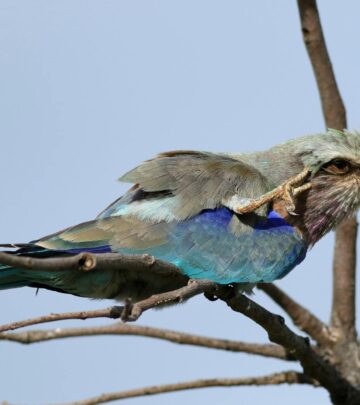

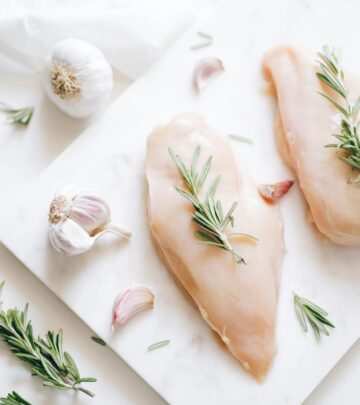



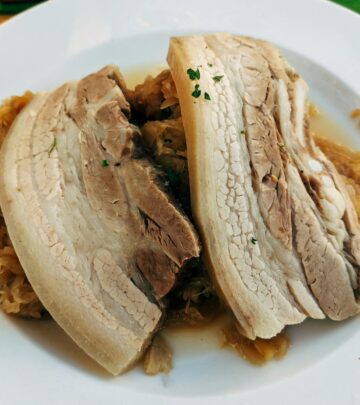



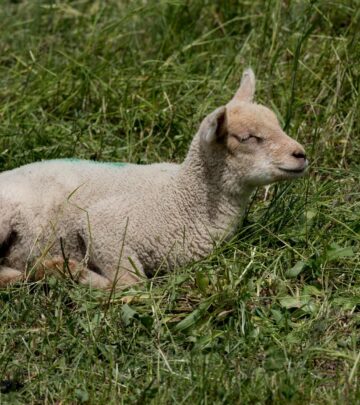
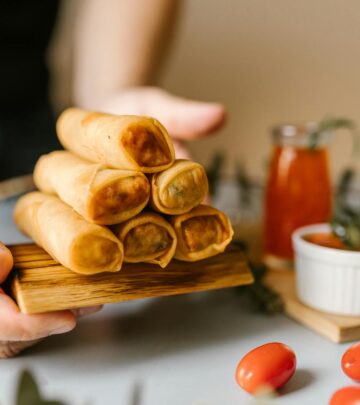

Community Experiences
Join the conversation and become a part of our empowering community! Share your stories, experiences, and insights to connect with other beauty, lifestyle, and health enthusiasts.